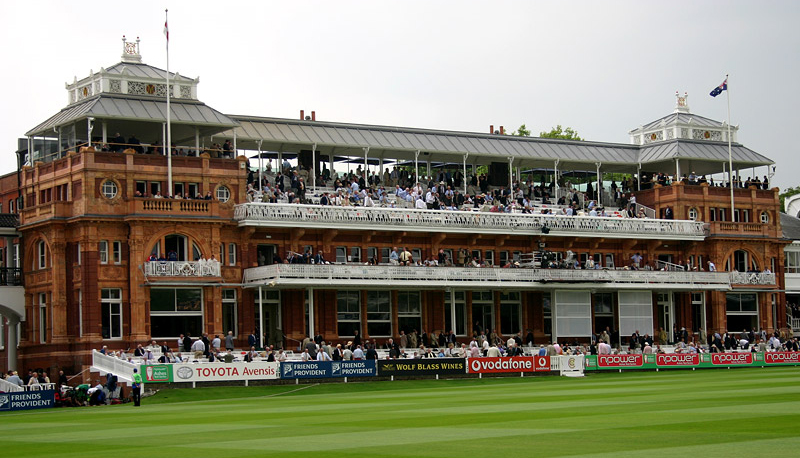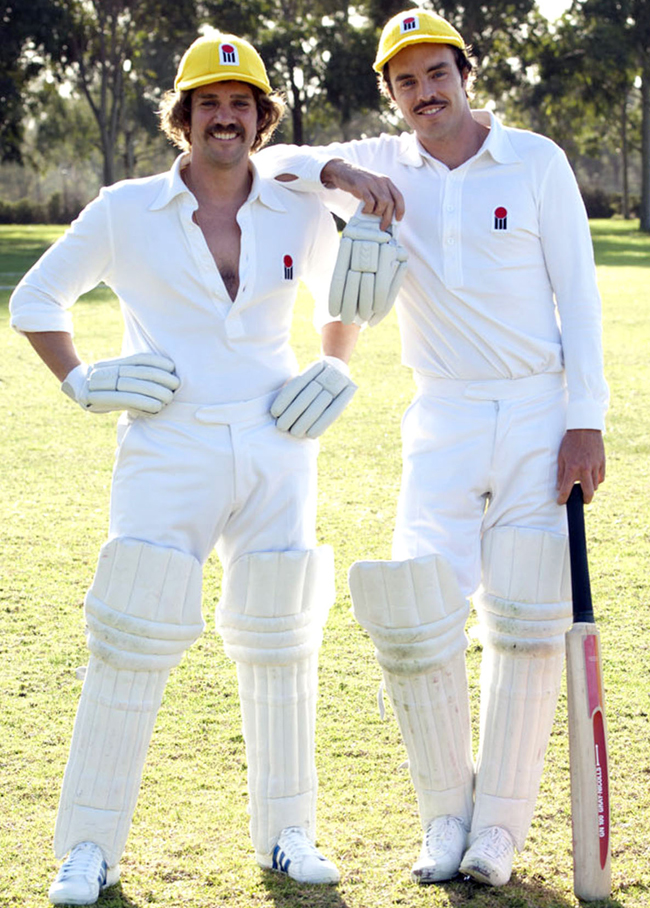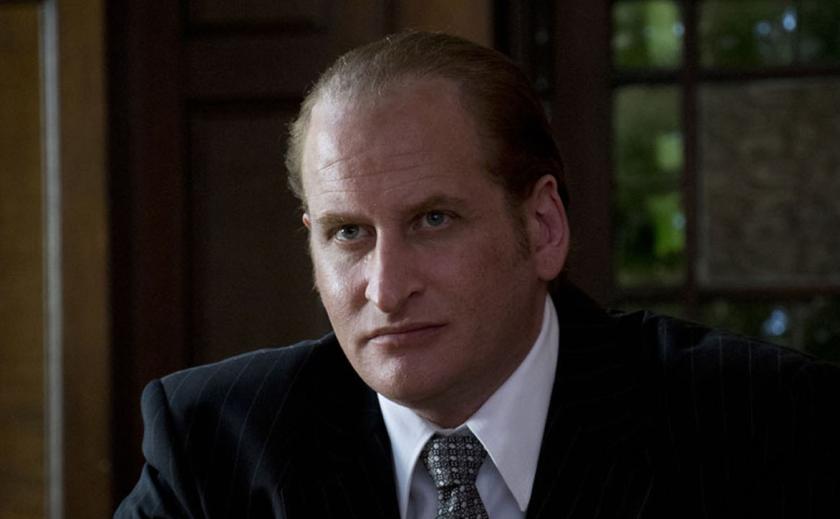Back in the Eighties, Australian TV brought us Bodyline, retelling (with some extravagant exaggeration) how Douglas Jardine's 1932 England side caused an international rumpus by zapping Australia with "leg theory" bowling. Even more seismic for the somnolent world of international cricket was Kerry Packer's World Series Cricket of the 1970s, whose story is reconstructed in this two-part drama from Australia's Nine Network (itself a part of the Packer empire).
In the days before the IPL, Twenty20 and Sky Sports had been dreamed of, cricket still retained a quaint, parochial air and a virtually medieval hierarchical structure. The administrators fenced off most of the game's earnings and assumed for themselves positions of lordly seclusion, largely indifferent to the wishes of the public, players or broadcasters. Many of them would love it to be like that now, but Kerry Packer was one of the first to grasp that it could, and should, be done differently.
 Posterity seems set to remember Packer as a sort of mini-Murdoch. He didn't achieve a Rupertian level of global notoriety, but his interests in television and publishing meant that he was one of Australia's richest men at his death in 2005, and he'd survived his fair share of scandals, including accusations that he was involved in tax evasion and organised crime.
Posterity seems set to remember Packer as a sort of mini-Murdoch. He didn't achieve a Rupertian level of global notoriety, but his interests in television and publishing meant that he was one of Australia's richest men at his death in 2005, and he'd survived his fair share of scandals, including accusations that he was involved in tax evasion and organised crime.
Howzat! restricts itself to the sphere of cricket, though its portrayal of Packer as a bullying and foul-mouthed tycoon prone to volcanic fits of rage fits the popular conception of him. Yet, as played by Lachy Hulme (who resembles Packer reasonably closely), he's somehow likeable despite everything, embodying an ethic of self-empowerment through energy and willpower and refusing to be trampled by the Establishment and its rich variety of old school ties (the Pavilion at Lord's, Home of Cricket, pictured above).
Nobody escapes the caustic lash of Packer's tongue. Squaring up to the dithering old duffers who run Australian cricket like a bunch of Dickensian lawyers, and offering them a then-colossal $1.5m for the TV rights to Australian cricket, he informs them: "Gentlemen, there's a little bit of the whore in all of us" (true story apparently). Recruiting cricketers to join his breakaway series, he decides that Ian Chappell will captain his Australian side, even though his brother Greg is the official Aussie skipper. "I'm paying the fucking bills, you're the fucking captain," decrees the irascible billionaire.
 He gorges himself on burgers and full English breakfasts, works his staff like galley slaves and is unbesmirched by chivalry ("Rose, what are you wearing?" he barks at his faithful assistant."You look like a sack of potatoes.") But, though the supercilious autocrats at the MCC sneer at him as a "barbarian" unable to appreciate cricket's rare and fine qualities, it's Packer who's depicted as being the more authentic lover of the game. He has a mini-epiphany as strolls across the empty Lord's outfield: "It's not just a game - it's something more," he murmurs. It's also Packer who is authentically shocked by the way cricket's ace international players are paid peanuts by their aloof administrators and seeks to give them a bigger chunk of the pie, a fact which helps him win a High Court action in London against the game's ruling authorities.
He gorges himself on burgers and full English breakfasts, works his staff like galley slaves and is unbesmirched by chivalry ("Rose, what are you wearing?" he barks at his faithful assistant."You look like a sack of potatoes.") But, though the supercilious autocrats at the MCC sneer at him as a "barbarian" unable to appreciate cricket's rare and fine qualities, it's Packer who's depicted as being the more authentic lover of the game. He has a mini-epiphany as strolls across the empty Lord's outfield: "It's not just a game - it's something more," he murmurs. It's also Packer who is authentically shocked by the way cricket's ace international players are paid peanuts by their aloof administrators and seeks to give them a bigger chunk of the pie, a fact which helps him win a High Court action in London against the game's ruling authorities.
The roll-call of famous players depicted in the show is enough to evoke a nostalgic tear - Ian and Greg Chappell (Clayton Watson and Damon Gameau, pictured above left), Dennis Lillee, David Hookes, wicketkeeper Rodney Marsh, England captain Tony Greig, Richie Benaud et al. The parade of sideburns, shaggy hairstyles and bristling moustaches looks preposterous in today's climate of hip-hop-esqe bling and male grooming products, but recaptures with unsettling accuracy what the boozing, fag-smoking, abuse-chucking Seventies cricketer looked like. The production, like its Antipodean protagonists, exudes a breezy and unpretentious pragmatism. Bring on part two.















Add comment